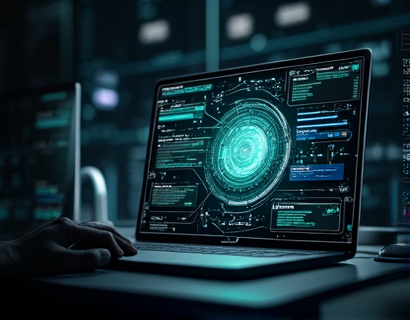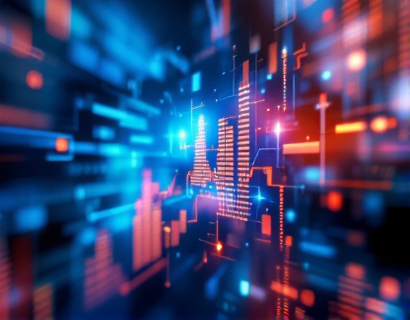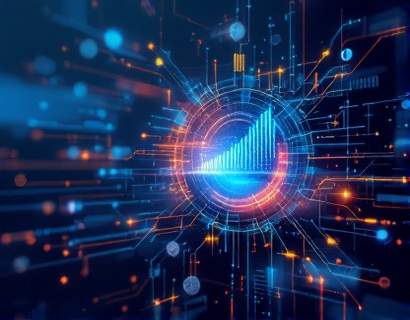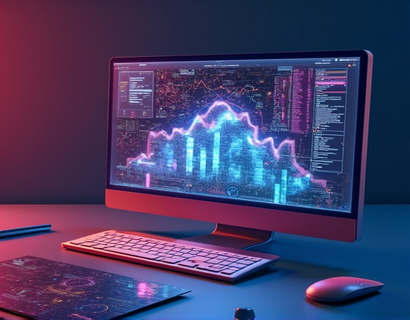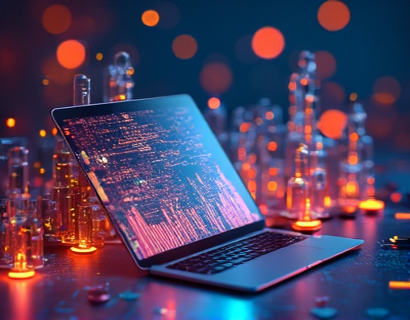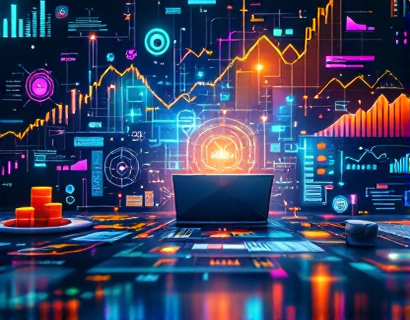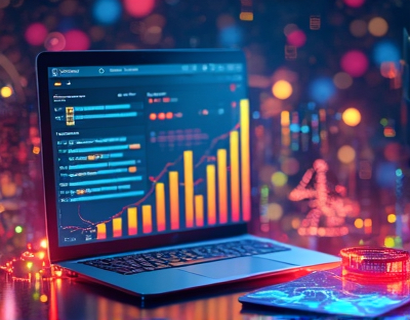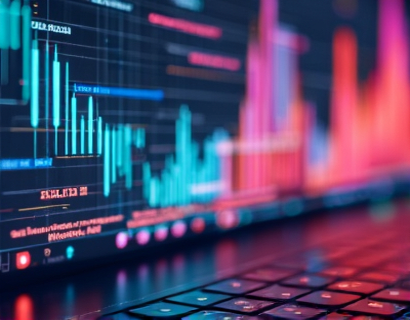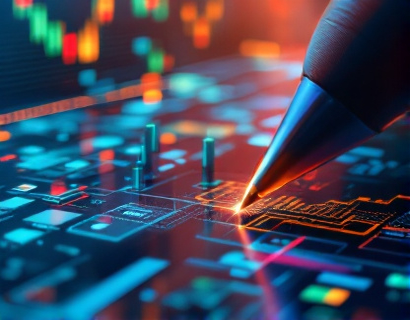Unleashing Next-Gen Productivity and App Accessibility Through AI and Crypto Fusion
The integration of Artificial Intelligence (AI) and cryptocurrency is revolutionizing the digital landscape, offering unprecedented opportunities for enhancing productivity and app accessibility. This fusion of technologies is not just a trend but a transformative shift that is redefining how we interact with digital tools and manage tasks. For tech enthusiasts and early adopters, this convergence presents a unique chance to explore innovative solutions that streamline workflows and unlock new potentials.
The core of this revolution lies in the synergy between AI's ability to process and analyze vast amounts of data, and cryptocurrency's role in creating decentralized, secure, and transparent systems. Together, they form a powerful duo that can optimize app performance, enhance user experiences, and ensure seamless task management. This article delves into the various ways AI and cryptocurrency are combining to create next-generation digital solutions, providing a comprehensive look at the future of productivity tools.
Enhancing App Performance with AI
AI technologies are significantly improving the performance and efficiency of applications. Machine learning algorithms can predict user behavior, optimize resource allocation, and automate routine tasks, thereby reducing the load on both the application and the user. For instance, AI-driven predictive analytics can anticipate user needs and pre-load necessary data or tools, ensuring that applications run smoothly and responsively.
Moreover, AI can enhance the security of apps by detecting and mitigating threats in real-time. By analyzing patterns and identifying anomalies, AI systems can protect user data and prevent unauthorized access. This is particularly crucial in an era where data breaches and cyber threats are increasingly common. The integration of AI in app security not only safeguards user information but also builds trust and reliability in digital tools.
Decentralization and Transparency with Cryptocurrency
Cryptocurrency, built on blockchain technology, offers a decentralized and transparent framework that complements AI's capabilities. Blockchain ensures that transactions and data exchanges are secure, immutable, and verifiable without the need for intermediaries. This decentralization reduces the risk of single points of failure and enhances the overall reliability of digital systems.
In the context of app accessibility, cryptocurrency can facilitate seamless and secure access to a wide range of services. Users can authenticate and authorize access to applications using cryptographic keys, eliminating the need for traditional login credentials that are often vulnerable to hacking. This not only improves security but also simplifies the user experience by reducing the complexity of authentication processes.
Streamlining Workflows with Smart Contracts
One of the most exciting applications of blockchain in the realm of productivity is the use of smart contracts. Smart contracts are self-executing contracts with the terms of the agreement directly written into code. They automatically trigger actions when predefined conditions are met, eliminating the need for manual intervention and reducing the potential for errors.
In a professional setting, smart contracts can automate various tasks such as invoicing, payment processing, and project milestones. For example, a smart contract can be programmed to release payment to a service provider once the specified deliverables are verified and uploaded to a blockchain. This not only speeds up the payment process but also ensures transparency and accountability.
AI can further enhance the functionality of smart contracts by providing intelligent decision-making capabilities. AI algorithms can analyze data, predict outcomes, and suggest optimal actions, making smart contracts more dynamic and responsive to changing conditions. This fusion of AI and blockchain creates a powerful tool for automating complex workflows and improving operational efficiency.
Personalized User Experiences Through AI
AI-driven personalization is another key area where the combination of AI and cryptocurrency is making a significant impact. By leveraging machine learning, applications can tailor experiences to individual users based on their preferences, behavior, and context. This level of personalization enhances user engagement and satisfaction, leading to higher productivity and better outcomes.
Cryptocurrency plays a role in this by enabling secure and private data transactions. Users can control their data and decide what information to share with applications, ensuring privacy while still benefiting from personalized services. Blockchain-based identity management systems can verify user identities and preferences, allowing applications to provide customized experiences without compromising security.
Tokenization of Digital Assets and Services
Tokenization, a process enabled by blockchain technology, is transforming the way digital assets and services are created, traded, and accessed. By representing assets or services as tokens on a blockchain, these offerings become tradable, divisible, and accessible to a global audience. This democratization of access is particularly beneficial for productivity tools and applications.
For instance, developers can tokenize their applications, allowing users to purchase, trade, or even earn tokens by using the service. These tokens can serve as a form of digital currency within the application ecosystem, facilitating in-app transactions and rewarding user engagement. AI can optimize the tokenization process by analyzing market trends, predicting demand, and adjusting token prices dynamically to ensure fair and efficient trading.
Moreover, tokenized services can be integrated with AI-powered assistants that manage and optimize the use of these tokens. For example, an AI assistant can automatically allocate tokens based on user activity, prioritize resource allocation, and even predict future needs, ensuring that users have the necessary tools and resources at their disposal.
Enhancing Collaboration and Communication
The fusion of AI and cryptocurrency is also revolutionizing collaboration and communication in digital workspaces. Decentralized communication platforms built on blockchain can ensure secure and private exchanges of information, while AI can enhance these platforms by providing intelligent features such as real-time translation, automated summarization, and context-aware suggestions.
AI-driven chatbots and virtual assistants can facilitate seamless communication by handling routine tasks, answering common queries, and providing relevant information. These AI assistants can be powered by blockchain to ensure data integrity and user privacy, creating a trustworthy environment for collaboration.
Token-based incentives can further encourage active participation and contribution within these collaborative platforms. Users can earn tokens for contributing valuable insights, completing tasks, or providing support to others. These tokens can be used to access premium features, participate in governance, or even traded for other digital assets, fostering a vibrant and engaged community.
Future-Proofing Digital Tools with AI and Crypto
As technology continues to evolve, the integration of AI and cryptocurrency will play a crucial role in future-proofing digital tools and applications. The adaptability and scalability of these technologies ensure that productivity solutions remain relevant and effective in the face of emerging challenges and opportunities.
AI's ability to learn and adapt to new data makes it an ideal partner for continuously improving digital tools. As new patterns and trends emerge, AI can update and refine algorithms to maintain optimal performance. Cryptocurrency, with its decentralized and secure nature, provides a robust infrastructure for supporting these evolving systems.
Moreover, the growing adoption of AI and cryptocurrency is driving innovation in related fields such as quantum computing, edge computing, and the Internet of Things (IoT). These advancements will further enhance the capabilities of digital tools, making them more powerful, efficient, and accessible.
Conclusion
The convergence of AI and cryptocurrency is ushering in a new era of productivity and app accessibility. By leveraging the strengths of both technologies, developers and users can create and utilize digital solutions that are more efficient, secure, and user-friendly. For tech enthusiasts and early adopters, this fusion offers a wealth of opportunities to explore and harness the full potential of next-generation digital tools.
As we move forward, it is essential to stay informed and adapt to the rapidly changing landscape. The integration of AI and cryptocurrency is not just a passing trend but a fundamental shift that will shape the future of digital productivity and collaboration. Embracing these technologies will equip individuals and organizations with the tools needed to thrive in an increasingly connected and intelligent world.






